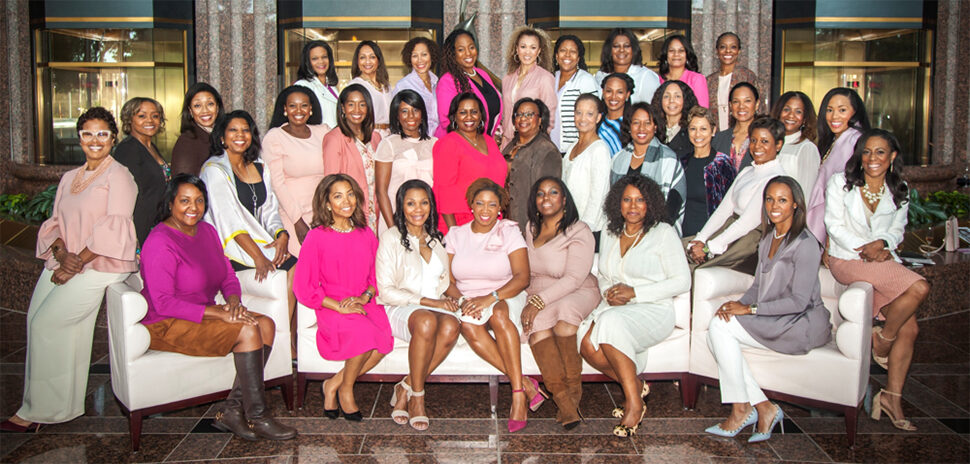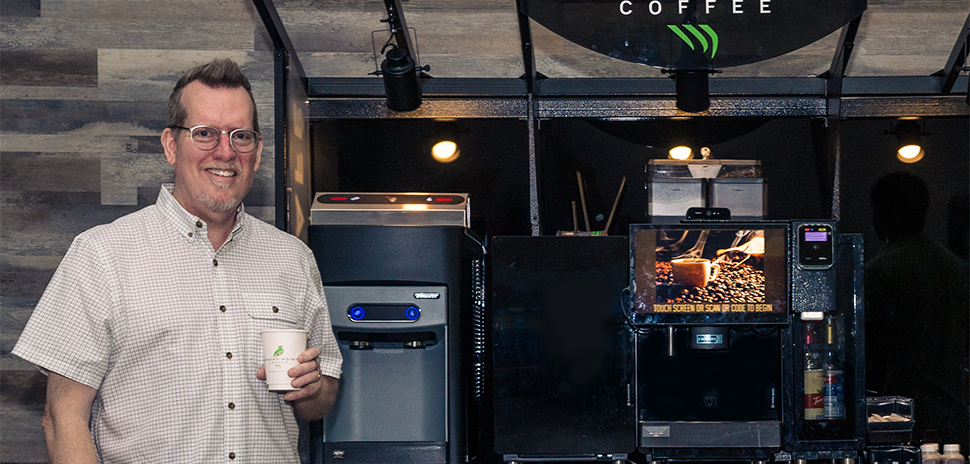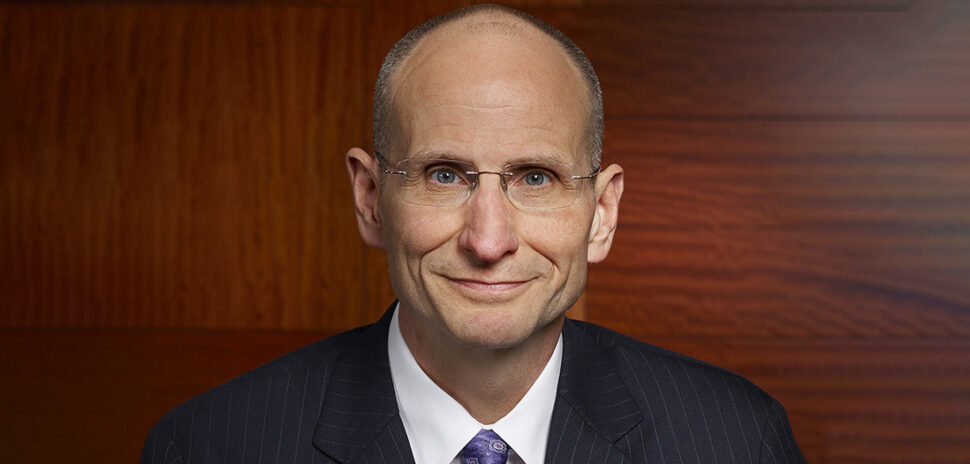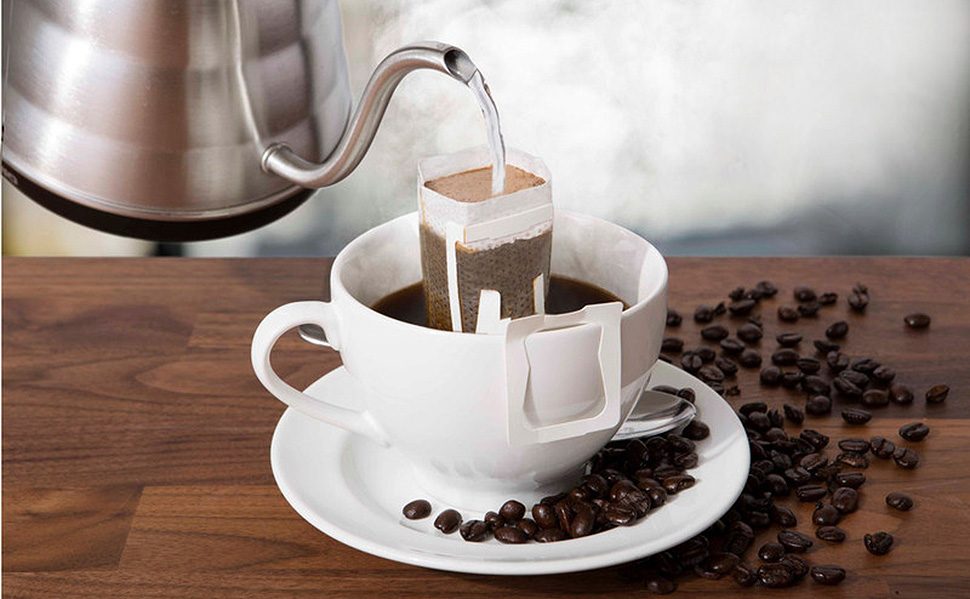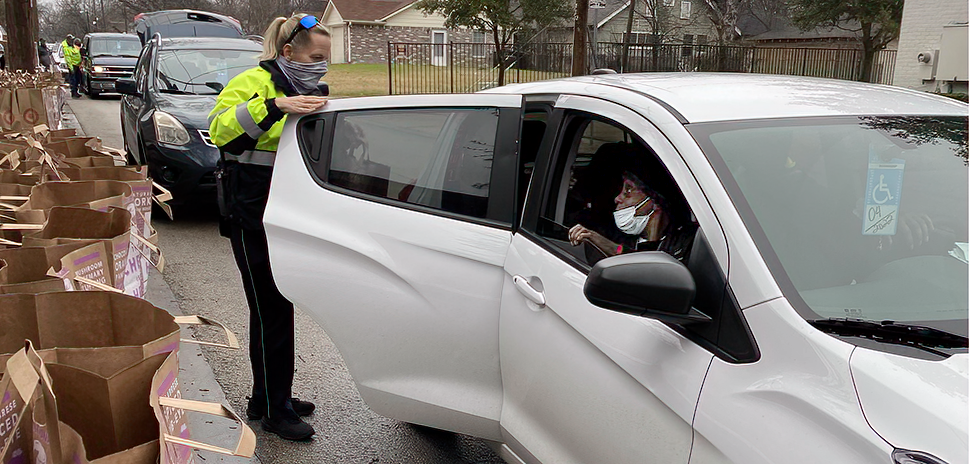The power of a coffeehouse cannot be underestimated. There’s something connective about a low-key, chilled-out place where people come to work, read, utilize free Wi-Fi, and of course, sip a hot brew.
“Once upon a time, when someone moved into a new neighborhood, the first thing they found was where they were going to work, the second thing was where they’d get groceries, and the third thing was where’d they’d go to church,” Union Coffeehouse community curator Mike Baughman says. “These days, that third thing is where they’ll get their coffee.”
Fortunately, Union Coffeehouse has taken those two third things—coffee and church—and combined them for your convenience. Union’s mission can be boiled down to three concepts: coffee, community, cause. “We exist to take care of the well-being of our community,” Baughman says. “A coffee shop is a hub of community.”
Union donates part of its proceeds, raises support for select causes, and sets up opportunities for people to get their hands dirty while serving and taking care of others. They also host a Friday-night storytelling event called Naked Stage, which consists of participants getting up on stage without notes and telling the gathered audience their raw stories.
Union’s mission can be boiled down to three concepts: coffee, community, cause.
But a large part of nurturing a community’s well-being, Baughman says, is tending to its religious aspect.
Union’s worship community, Kuneo (roughly translated, “to kiss”), includes Tuesday and Sunday night worship gatherings at the coffeehouse with a “we’re here if you need us” approach. There’s no bait-and-switch (that is, if you wander in on a Tuesday night to study and sip coffee, no one’s going to rope you into joining the worship service), no pressure, and no judgment. Baughman says that 80 percent of the people who attend Kuneo are “religious refugees”—folks who left the church at some point or never belonged to it in the first place. Kuneo provides a spiritual haven for those who might not fit in at a megachurch or in an ultraconservative setting. Or for people who want to discuss, argue, exchange ideas, and grow.
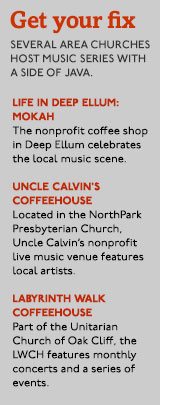 Sunday nights bring in a lot of folks from the art community, and often feature short performances: musical theater, monologue, storytelling, visual art. According to Baughman, the broader church hasn’t done a great job of reaching out to the arts community, and Kuneo tries to remedy that. Worship services primarily draw people in their twenties to mid-thirties, with minorities and the LGBT community represented. Turnout averages between 40-60 people per night.
Sunday nights bring in a lot of folks from the art community, and often feature short performances: musical theater, monologue, storytelling, visual art. According to Baughman, the broader church hasn’t done a great job of reaching out to the arts community, and Kuneo tries to remedy that. Worship services primarily draw people in their twenties to mid-thirties, with minorities and the LGBT community represented. Turnout averages between 40-60 people per night.
“We didn’t set up Union to bring God into the neighborhood or Jesus to the people,” Baughman says. “Our assumption is that God is already at work in the neighborhood. Our job is to see what God is doing in the lives of the people around us and to celebrate and be part of it.”
Worship sessions are inclusive and round-table style. The sermons are short, revolving around debate and discussion, and tackling tricky topics like sex and death. An upcoming series about finance aims to inspire frank discussions about salaries and money management.
Kuneo is a resurgence development, of sorts, for the Methodist church—and they have the license to innovate as much as they want. There’s a focus on community and collaboration over competition and a friendly doors-open policy. As people reject traditional church settings and look for more welcoming environments, Kuneo is there—to teach, to listen, and to provide plenty of opportunities to improve the greater Dallas community. “There’s a lot of power in sitting around a table, talking and dreaming about what can be,” Baughman says. “That comes about in a coffee shop, and is what church should be doing, too.”
For a daily dose of what’s new and next in Dallas-Fort Worth innovation, subscribe to our Dallas Innovates e-newsletter.

